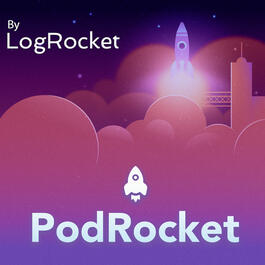
Dominic Gannaway joins us to talk about Ripple.js, a new TypeScript-first UI framework built with its own templating language and a focus on clarity and reactivity. We explore how Ripple.js handles fine-grained updates through its track and block system, why it avoids global state, and how context plays a key role. Dominic also walks us through the developer experience, from the language server and VS Code integration to syntax highlighting and the Prettier plugin, plus how the framework handles error boundaries, server-side rendering, future plans, and more. Links Twitter: https://x.com/trueadm Github: https://github.com/trueadm LinkedIn: https://www.linkedin.com/in/dominic-gannaway-414b7750 Resources RippleJS GitHub: https://ripplejs.github.io RippleJS website: https://www.ripplejs.com/ We want to hear from you! How did you find us? Did you see us on Twitter? In a newsletter? Or maybe we were recommended by a friend? Fill out our listener survey (https://t.co/oKVAEXipxu)! https://t.co/oKVAEXipxu Let us know by sending an email to our producer, Elizabeth, at elizabeth.becz@logrocket.com (mailto:elizabeth.becz@logrocket.com), or tweet at us at PodRocketPod (https://twitter.com/PodRocketpod). Check out our newsletter (https://blog.logrocket.com/the-replay-newsletter/)! https://blog.logrocket.com/the-replay-newsletter/ Follow us. Get free stickers. Follow us on Apple Podcasts, fill out this form (https://podrocket.logrocket.com/get-podrocket-stickers), and we’ll send you free PodRocket stickers! What does LogRocket do? LogRocket provides AI-first session replay and analytics that surfaces the UX and technical issues impacting user experiences. Start understanding where your users are struggling by trying it for free at LogRocket.com. Try LogRocket for free today. (https://logrocket.com/signup/?pdr) Chapters 00:00 – Intro & What is RippleJS 01:00 – The Origins and Naming of Ripple 02:00 – A New UI Framework Built on TypeScript 03:30 – Creating a Custom Language and Templating System 05:00 – Building Ripple’s Tooling and Language Server 06:00 – The Team, Open Source Growth, and Early Feedback 07:00 – From UI Framework to Meta Framework 09:00 – Integrating AI into the Dev Server 10:30 – Handling Controversy and Changing the Status Quo 11:30 – How Ripple Was Built in a Week 13:00 – Redesigning the Reactivity System 16:00 – Why Ripple Doesn’t Use Global State 19:00 – Lessons Learned from Other Frameworks 21:00 – Naming Conventions and API Design Decisions 22:30 – Error Boundaries and Async Patterns in Ripple 24:00 – Accessibility and ByteDance Native App Integration 25:00 – The Team’s Workflow and Contributor Culture 27:00 – Building TypeScript-First from Scratch 29:00 – Language Server, Source Maps, and VS Code Integration 31:00 – Building in Public and Open Source Collaboration 32:30 – The Future of Frontend Frameworks 34:00 – How Ripple’s Ideas Might Influence Others 35:00 – AI, Security, and the Road Ahead 36:00 – Closing Thoughts & How to Get Involved
From "PodRocket"


Comments
Add comment Feedback